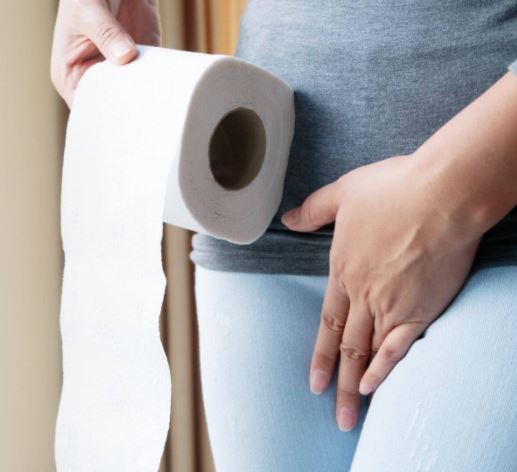

Experiencing postpartum incontinence is a grave issue; however, it shouldn’t make you lose your confidence. Although postpartum incontinence is a common condition after pregnancy, it shouldn’t be deemed necessarily normal. There are many ways to control incontinence and grasp the control of your life again.
Products like incontinence pants for women are a good non-surgical approach to help with incontinence. The following is everything you need to know about postpartum incontinence.
Postpartum incontinence refers to the involuntary release of bladder control after childbirth or pregnancy. According to a study, the risk of pregnancy incontinence is thrice as high in three months following delivery of the baby.
Therefore, it’s perfectly normal to experience a bit of dribbling or leakage of urine during strenuous physical activity after childbirth. Moreover, it’s a common condition during the postpartum period among women, which can be easily prevented with a bit of effort.
However, if you used to pee your pant regularly during pregnancy, then there’s a high possibility that you can develop poor bladder control even after pregnancy. In such cases, make sure that you consult your gynaecologists to avoid developing permanent urinary incontinence after pregnancy.
There are three types of urinary incontinence, all of which occur after pregnancy. Below is a brief on each type of urinary incontinence for your reference.
Stress Urinary Incontinence happens due to the applied pressure on the bladder as a result of physical activity. It can also happen when you are coughing, sneezing or exercising. Stress Urinary Incontinence is the most common incontinence among young mothers who have given birth recently.
Urgency urinary incontinence refers to the uncontrollable and sudden urge to pee. This incontinence condition isn’t linked to post-pregnancy incontinence but rather to age. It’s also the reason why people suffering from urgent urinary incontinence belong to the older age group.
Mixed incontinence is a mix of urgency and stress urinary incontinence conditions.
Even though postpartum incontinence often happens among new mothers, saying that childbirth is a cause of these conditions is incorrect. According to experts, factors like genetics and the delivery process can also trigger urinary incontinence.
Moreover, you are at a higher risk of suffering from incontinence if you’re overweight or had
incontinence before pregnancy.
Although rare, it’s entirely possible that your urinary incontinence is a sign of a more serious problem relating to your pelvic organ. Therefore, it’s wise to consult a doctor if you notice pee leakage often in your pants.
There’s no one perfect way to prevent incontinence as the cause of this condition varies from person to person. However, you can certainly keep this condition at bay with mindful exercising and customized treatment options.
There are also non-surgical options like incontinence pants for women that you can certainly invest in to help with your bladder control. These pants aid in carrying out your day-to-day activities without any glitches and prevent pee from leaking out your clothes.
Apart from these pants, you can also practice pelvic floor exercises to strengthen your pelvic organ muscles. Strengthening your pelvic muscles will help you control your bladder. Besides, it would be best to avoid strenuous exercises like jumping and running during this condition.
Urinary incontinence is a common bladder control condition experienced by many people. However, you can certainly get better and work with your doctor to prevent this condition.
With proper guidance and therapy, you can regain the control of your bladder to go on with your life.
24World Media does not take any responsibility of the information you see on this page. The content this page contains is from independent third-party content provider. If you have any concerns regarding the content, please free to write us here: contact@24worldmedia.com

Marnus Labuschagne Caught Off-Guard By ODI Captain Call After Steve Smith Snub

Everyone Is Looking Forward To It, The Standard Will Be Very High – Jacques Kallis On CSA’s SA20

Danushka Gunathilaka Granted Bail On Sexual Assault Charges

Ramiz Raja Sends Legal Notice To Kamran Akmal For Defamatory, False Claims Against The Board

Harbhajan Singh Reckons Mumbai Indians Should Release Kieron Pollard Ahead Of The IPL Auction 2023

Ian Bishop Praises Sam Curran For His Performances On Bouncy Australian Tracks

Why Choose A Career In Child Psychology?